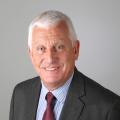Technology to help people 'retain their voice' despite the devastating effects of motor neurone disease is being made permanently available in Dorset.
Dorset HealthCare’s Speech and Language Therapy Team has trialled a voice banking service, funded by the East Dorset and New Forest branch of the Motor Neurone Disease Association.
This offered MND patients the chance to record hundreds of words and phrases on computer which they can use to communicate in the event of losing their voice as the illness progresses.
It has been used by more than 40 people and in a major boost the MNDA has now provided funding to make the service permanent.
Dorset is one of the few areas in the country to offer this service.
Annie Allen of Poole noticed something was wrong five years ago, was diagnosed with bulbar palsy a year later and lost her ability to speak in 2018.
She said: “My husband and son find it a great comfort to still be able to hear my voice.
"I would urge anyone with MND, or any kind of degenerative speech issues, to bank their voice – and do it as soon as possible.
“If I had left mine any longer, it may have been too late. Even if you do not ever need to use your bank voice, at least you will have it immortalised for your loved ones.”
Between 50-60 people are diagnosed with MND each year in Dorset.
She told the Echo via text message this week: "MND has also robbed me of the ability to walk, eat or drink. I use a power chair full time and a feeding tube for nutrition and hydration. Recently I have had to start using a ventilator overnight."
Mrs Allen, 55, has had her banked voice loaded into Eyegaze technology allowing her to type using her eyes because using her hands is now difficult.
"The technology is a game-changer," she wrote.
Services users are provided with a laptop and headset and record hundreds of sentences.
And, if a person’s speech does deteriorate over time, these recordings can be used to vocalise almost anything they type into their computer – allowing them to hold conversations in their own voice.
Matthew Hollis, Communications Aids Co-ordinator for the MND Association, said: “A person’s voice is a fundamental part of them and voice banking allows them to retain this part of their individuality, if and when the progression of their disease means they lose the ability to speak."
Luisa Mellish, service manager for Dorset HealthCare added: “Technology has moved on so much in recent years – recordings are more accurate, and it is much quicker for people to do the ‘banking’.
“We can also offer additional functions such as message banking, which allows users to record any number of common or meaningful phrases they use on a regular basis.
The service can help people with other degenerative conditions which could affect their voice, not just MND.
See www.dorsethealthcare.nhs.uk/speech-and-language-therapy






Comments: Our rules
We want our comments to be a lively and valuable part of our community - a place where readers can debate and engage with the most important local issues. The ability to comment on our stories is a privilege, not a right, however, and that privilege may be withdrawn if it is abused or misused.
Please report any comments that break our rules.
Read the rules here